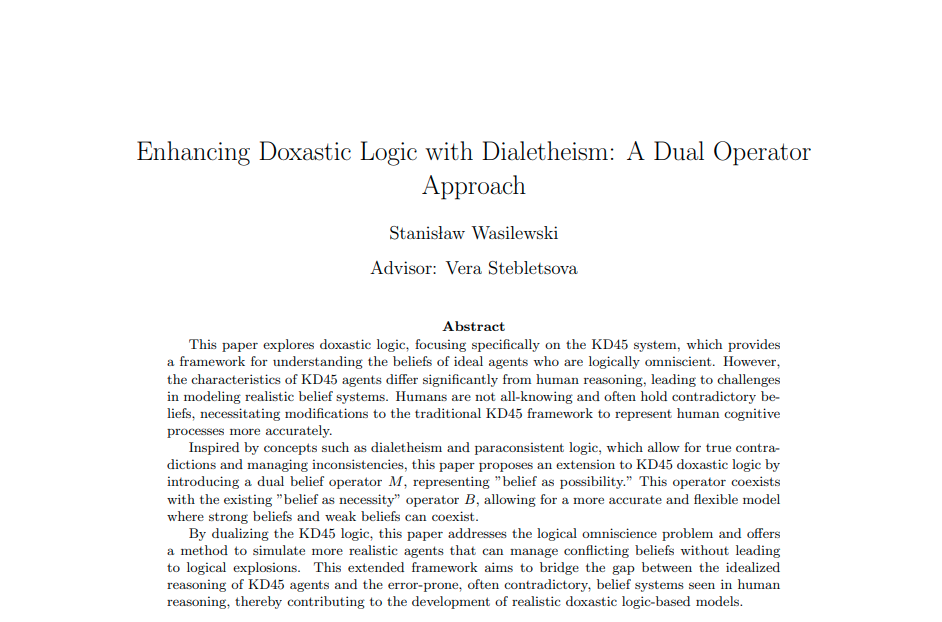Doxastic Logic Research Paper
Academic exploration of the logic of belief systems for AI reasoning

Overview
This research paper explores doxastic logic, a specialized branch of modal logic that formalizes the concept of belief. Developed as part of the Honours course "Formal Logic for AI" at Vrije Universiteit Amsterdam, the paper examines the theoretical foundations of doxastic logic and its applications in artificial intelligence reasoning systems.
The Study
The paper investigates several key aspects of doxastic logic:
- The formal structures and axiomatics of belief systems
- Connections between doxastic logic and epistemic logic (the logic of knowledge)
- Difference between knowledge and belief representation in formal systems
- The application of doxastic operators in multi-agent reasoning
- Challenges in formalizing inconsistent beliefs and belief revision
Theoretical Framework
The research paper provides a comprehensive analysis of:
- The modal operators for belief and their semantic interpretations
- Accessibility relations in Kripke semantics for doxastic logic
- The differences between KD45 (for belief) and S5 (for knowledge) modal systems
- Formalization of group beliefs and distributed belief systems
- Logical omniscience problem and approaches to address it
Applications in AI
The paper examines how doxastic logic contributes to artificial intelligence systems:
- Representing uncertain knowledge and beliefs in intelligent agents
- Modeling belief revision processes when agents encounter new information
- Formalizing reasoning about others' beliefs in multi-agent systems
- Applications in game theory, negotiation systems, and social simulations
- Connections to modern large language models and their "belief" systems
Conclusions
The research demonstrates that:
- Doxastic logic provides critical formal tools for representing belief in computational systems
- The distinction between knowledge and belief is essential for robust AI reasoning
- Current challenges exist in addressing the gap between theoretical doxastic frameworks and practical AI implementations
- Future work should integrate doxastic logic with probabilistic reasoning to better model uncertain beliefs
Read the Full Paper
For a comprehensive exploration of doxastic logic and its applications in AI reasoning, download the complete research paper.
Download Research Paper (PDF)